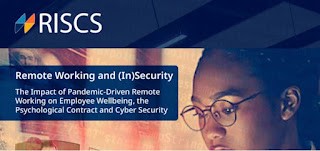Cyber 9/12 Strategy Challenge Report. Team Polymath
In mid-February of this year, our team (First year CDT students, Rebecca Hartley, Alex Hodder-Williams, Sasha Lapiha, and Taylor Robinson) participated in the Cyber 9/12 Strategy Challenge. Our team was coached by former Cyber 9/12 participant and coach Nick Robinson and received additional valuable assistance from Ian Slesinger. The annual event, which was virtual this year, requires competitors to propose policy options to a panel of judges (acting as if they are from the Prime Minister's offices) responding to a fictional scenario involving a cyber threat. The competition aims to provide participants with an understanding of the technical, social, political, and economic impacts of cyber security events.
Our team entered under the name "Polymath" which we wanted to reflect the multidisciplinary backgrounds of our members, representing many disciplines ranging from maths, computer science, international relations, and business.
This year's fictional scenario evolved around a climate activist group seeking to use cyberspace for activism. To do this, they found and exposed a vulnerability in an IoT chipset, which would allow them to shut down an unknown amount of industrial and home IoT devices. During the first round, the group carried out a test attack on morgue fridges at seven different sites across the UK. In the two weeks leading up to the competition, our role was to develop policies to anticipate and respond to the future escalation of the group's actions and any effects it may have on global supply chains.
After successfully making it into the second round of the competition, our team was provided with the second intelligence packet that informed us that the activist group successfully attacked chips in industrial air conditioning units in a "Whamazon" data centre located in the UK. These actions produced a cascading effect on related businesses, disrupting supply chains and simultaneously causing a variety of public responses on social media. Our team worked overnight to develop three more policies that responded to other potential attacks and threats to the supply chain. After approximately 2.5 hours of sleep, we successfully presented our policy decisions to the second panel of judges. Unfortunately, despite positive feedback, we did not make it into the final round of the competition.
Although we did not make it into the final round, we collectively found the competition a positive experience - especially from a team-building and research perspective.
As a team, we learnt greatly from each other's expertise. There were many instances that we disagreed on how to respond to certain information provided in the intelligence briefings. Our different interpretations made our team stronger and allowed us to think about the scenario more thoroughly. Real-world policymakers work with various sectors and disciplines daily, so having a multidisciplinary team allowed us to experience the benefits and challenges that policymakers face. This further established the essential need for public, private, and global collaboration to overcome cyber threats. Additionally, the time-pressured environment was a fulfilling experience. We were able to get a taste of how policymakers have to cope under pressure during an emergency.
Finally, during our preparation for both rounds we learnt about how current preparation and research is being conducted on the potential for a real life incident similar to Cyber 9/12.
Overall, we enjoyed the teamwork and simulated scenario of Cyber 9/12 and encourage future teams to get in touch for more information.



Comments
Post a Comment